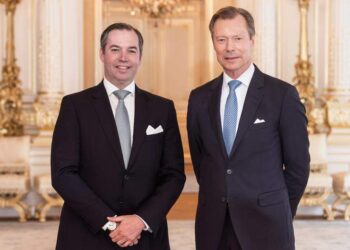This time, we journey to Poland to spotlight Michal A. Tuczapski, Executive Director at Mental Health Rescuers (MHR), whose groundbreaking work connects youth leadership, global advocacy, and cutting-edge research.
Michał collaborates with the United Nations, prominent youth organizations, and trailblazing initiatives that champion youth inclusion in decision-making on the world stage. With extensive experience representing young voices at international forums, he advances the causes of cultural exchange, sustainable development, and indigenous well-being.
His academic pursuits at the University of Oxford and the University of Cambridge examine youth empowerment, transnational challenges, and global equity. Michal’s vision continues to reshape how the world engages with young leaders.
This interview explores his journey, insights, and the transformative role of youth in driving global progress, particularly in mental health.
Excerpts:
How did your journey in youth activism begin, and what drives your dedication to this work?
My journey in youth activism began with an experience that will forever remain etched in my heart. I lost a classmate to suicide—a bright, compassionate, and talented young person whose silent struggles went unnoticed until it was too late. The shock of that loss was matched only by the silence that followed. No one spoke about mental health, the challenges young people face, or the systemic failures that allow such tragedies to happen. That silence was a turning point for me.
It became clear that mental health wasn’t just a personal issue; it was a global crisis, deeply woven into the fabric of inequality, stigma, and neglect. I channeled my grief into action, determined to ensure that no other young person would feel so unseen, unheard, and unsupported. This personal mission evolved into something far larger—an unwavering commitment to building a world where youth mental health is prioritized.
Through founding Mental Health Rescuers, the world’s largest youth-led mental health nonprofit, I’ve been privileged to transform this vision into global action. But the journey didn’t stop there. I joined forces with the United Nations and international coalitions like the Unlock the Future Coalition, uniting with the Big Six Youth Organizations to address global challenges, from mental health to education and inequality. These collaborations are rooted in the belief that young people are not just beneficiaries of change; they are the architects of solutions.
Working with the United Nations, I’ve had the opportunity to advocate for integrating mental health into global humanitarian efforts, from crises impacting refugee children to systemic challenges in schools and communities. Through the Unlock the Future Coalition, we’re reimagining the role of youth in tackling the world’s most urgent challenges. The coalition brings together youth leaders, organizations, and global institutions to ensure that the future is one shaped by the voices and visions of young people.
What drives me is the realization that youth mental health is not an isolated issue; it’s a cornerstone of sustainable global development. A world that invests in its young people’s mental well-being secures its future. My work is fueled by the knowledge that we, as young leaders, have the power to dismantle barriers, challenge stigma, and inspire others to join this movement for change.
This journey is about much more than mental health. It’s about unlocking the potential of an entire generation to lead with empathy, courage, and a vision for a better, more inclusive world.
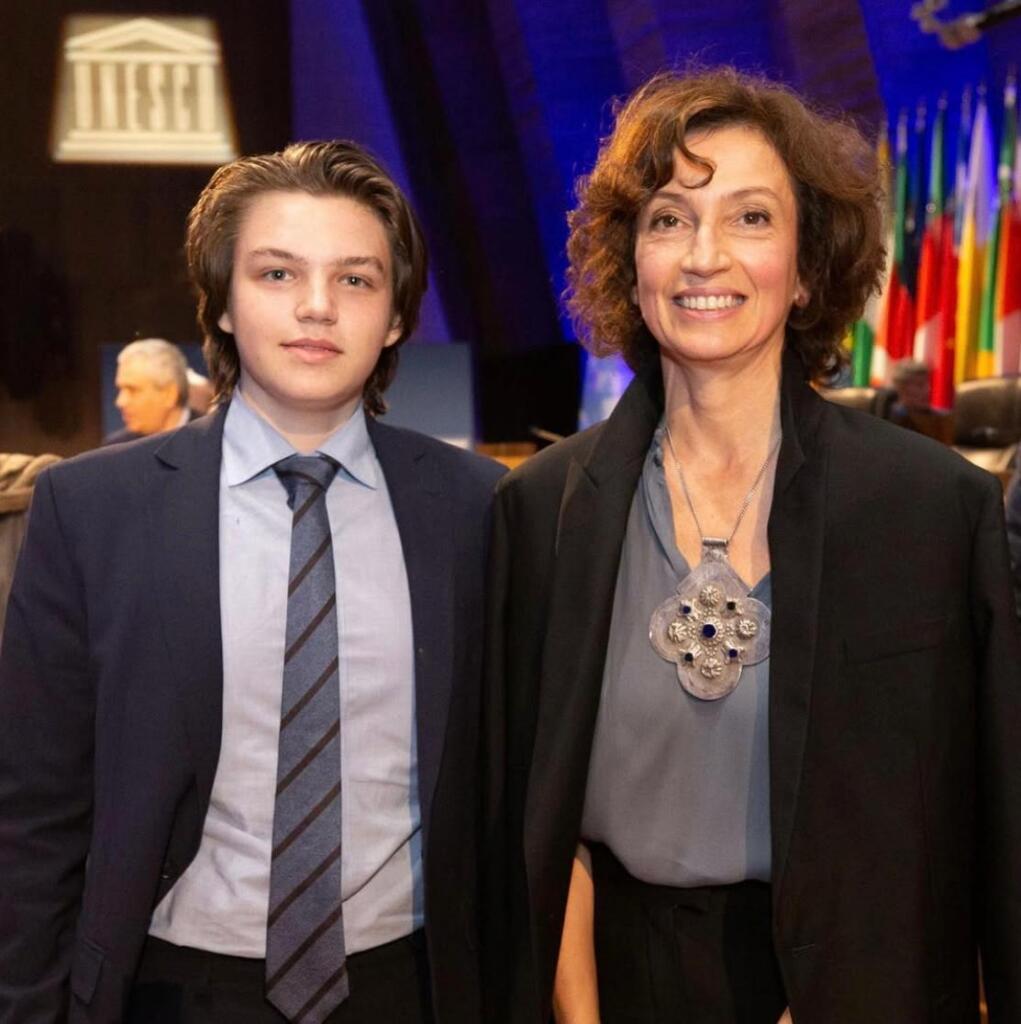
As executive director at MHR, what are some standout moments or projects that have impacted you?
One moment that stands out vividly in my memory is February 24, 2022—a day that changed the trajectory of the world, and most importantly, the lives of ordinary citizens in Ukraine. When the first reports of the crisis came in, I knew immediate action was needed. That same morning, I began mobilizing resources, organizing support, and rallying others to respond to what would become one of the largest humanitarian challenges of our time.
What followed was an unprecedented effort. Mental Health Rescuers managed to involve the entire international community, uniting governments, organizations, and youth activists from around the globe to support those most affected by the crisis. From psychological first aid to long-term psychosocial interventions, our work became a lifeline for children, mothers, and elderly individuals who had lost everything.
One of our most transformative partnerships was with the United Nations High Commissioner for Refugees (UNHCR). Together with the broader U.N. system, we developed and implemented programs that directly brought culturally sensitive psychological assistance to refugee camps, shelters, and community centers. The goal was not just to address trauma but to help rebuild lives, foster resilience, and empower communities to heal collectively.
I recall visiting a center where a young boy, who hadn’t spoken a word since fleeing his home, began to open up during one of our sessions. That moment reinforced why this work matters. It’s not just about responding to crises—it’s about restoring humanity, dignity, and hope.
Beyond the Ukrainian crisis, Mental Health Rescuers has also worked on mental health initiatives in some of the most challenging contexts globally, including regions impacted by famine in Sub-Saharan Africa, the devastation of natural disasters in Southeast Asia, and the turmoil of ongoing conflicts in the Middle East. Each project has reaffirmed my belief that mental health is a universal right, not a privilege and that youth-led organizations like ours are uniquely positioned to create lasting impact.
These experiences have shown me the immense power of collaboration and the importance of acting swiftly in times of crisis. They’ve also deepened my commitment to ensuring that mental health support is not an afterthought but a cornerstone of humanitarian and development efforts.
Representing youth at major UN events is impressive—can you share a memorable experience from one of these gatherings?
One of the most unforgettable experiences I had representing youth at a major United Nations event was during the UN Summit of the Future. It was a pivotal moment, not just for me but for all young people striving to be part of global decision-making. At this summit, I had the privilege of speaking on behalf of the youth-led movement for mental health, bringing attention to the urgent need to integrate mental health support into all aspects of sustainable development.
What made this experience so impactful was not just the platform itself, but the conversations that unfolded after my speech. I remember one particular exchange with a member of a national delegation, who after hearing about the disproportionate effects of mental health issues on youth in conflict zones, asked, “What can we do, right now, to make a difference?” That question exemplified the transformative potential of these events. It wasn’t just about awareness—it was about sparking real action, about moving from rhetoric to tangible, life-changing interventions.
Another poignant moment was when I met with youth representatives from countries facing extreme challenges—countries that often feel invisible on the global stage. We discussed how mental health must be prioritized alongside other urgent development goals, such as poverty eradication, climate action, and peacebuilding. These young people, despite facing unimaginable hardships, demonstrated incredible resilience, and their stories made it clear that the future of the world will depend on our ability to not only provide aid but to create long-term systems of care and support.
What stands out from these events is the sense of urgency that youth bring to the table. It’s a sense of impatience for change, but also a profound belief in the power of youth to drive that change. Youth are not just the leaders of tomorrow; we are the leaders of today. The UN events where I’ve had the honor to represent youth have reinforced that the world is ready to listen—if we are bold enough to speak. It is through these gatherings that we ensure that young people are not just stakeholders but active, empowered participants in shaping the future.
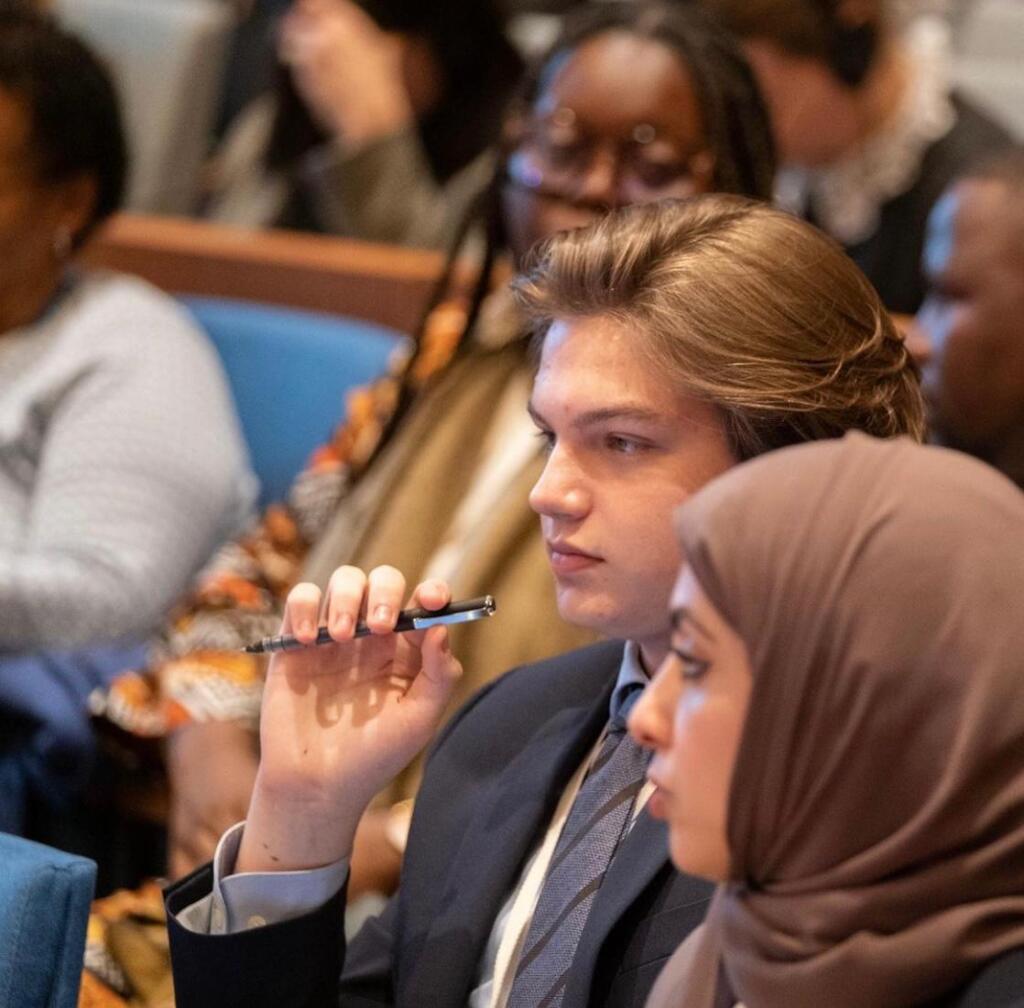
How have your experiences with different cultures influenced your approach to global youth advocacy?
Having lived on five different continents from a young age, I’ve been immersed in a diverse array of cultures, each with its unique values, challenges, and perspectives. These experiences have deeply shaped my approach to global youth advocacy, reinforcing the belief that true change can only come when we embrace cultural diversity and understand the nuanced needs of young people across different contexts.
One of the most valuable lessons I’ve learned is the importance of listening to youth from every corner of the world. Growing up in such diverse environments has taught me that the struggles young people face, such as mental health challenges, inequality, and lack of access to education, are universal. How these issues manifest and are addressed can differ dramatically from one culture to another. This has influenced how I design and advocate for youth-focused programs, ensuring they are not only globally relevant but culturally sensitive.
For example, in some cultures, mental health is still heavily stigmatized, and talking about it is often considered taboo. In others, mental health is seen through a communal lens, where the entire family or community is involved in healing. These cultural distinctions are crucial to understand, especially when advocating for mental health initiatives. My experiences have taught me that a one-size-fits-all approach doesn’t work. Instead, advocacy must be adaptable, considering local customs, traditions, and societal attitudes.
Moreover, my time in different countries has highlighted the importance of youth leadership in shaping solutions. In places like Eastern Europe, where youth-led movements are growing stronger, I’ve seen firsthand how young people can drive meaningful change, even in the face of adversity. In regions affected by conflict or poverty, I’ve witnessed the resilience and creativity of young people who, despite their circumstances, are not waiting for others to act but are leading initiatives in their communities.
Ultimately, my experiences across cultures have taught me that global youth advocacy requires empathy, flexibility, and an open mind. It’s about creating a platform for youth voices, ensuring that no matter their background or geographic location, they have the opportunity to shape the future. It’s through understanding and embracing the richness of diverse cultures that we can truly build a more inclusive, resilient, and compassionate world.
What is the most pressing issue you believe young people should focus on in global decision-making?
The most pressing issue that I believe young people should focus on in global decision-making is the escalation of mental health crisis worldwide, particularly its devastating impact on youth. Depression, anxiety, and emotional distress are reaching unprecedented levels, exacerbated by the climate crisis, armed conflicts, displacement, and societal pressures. Yet, mental health remains woefully underrepresented in international resolutions, declarations, and policymaking. This must change, starting with direct engagement in the highest echelons of global governance.
I highly recommend youth advocates collaborate directly with leaders like Felipe Paullier, the UN Assistant Secretary-General for Youth Affairs, to ensure mental health becomes a central agenda in the global youth strategy. By working closely with key figures at the United Nations, young people can shape frameworks and drive commitments that prioritize mental health in development agendas, fostering alignment with the Sustainable Development Goals (SDGs).
Furthermore, I strongly believe the World Health Organization (WHO) should recognize depression as a global pandemic. Such a declaration would send a powerful signal, galvanizing resources, and political action to address mental health on par with physical health crises. International recognition would also pave the way for enhanced funding, cross-border collaboration, and the integration of mental health into emergency response systems, ensuring that no young person is left behind.
We also need actionable commitments in existing UN mechanisms. For example, integrating mental health as a core pillar in the UN’s Youth2030 strategy would help elevate the issue within global decision-making processes. Additionally, the European Union (EU), through its Youth Dialogue, should adopt binding resolutions that commit member states to expanding access to youth-friendly mental health services and prioritizing mental well-being in education, employment, and healthcare policies.
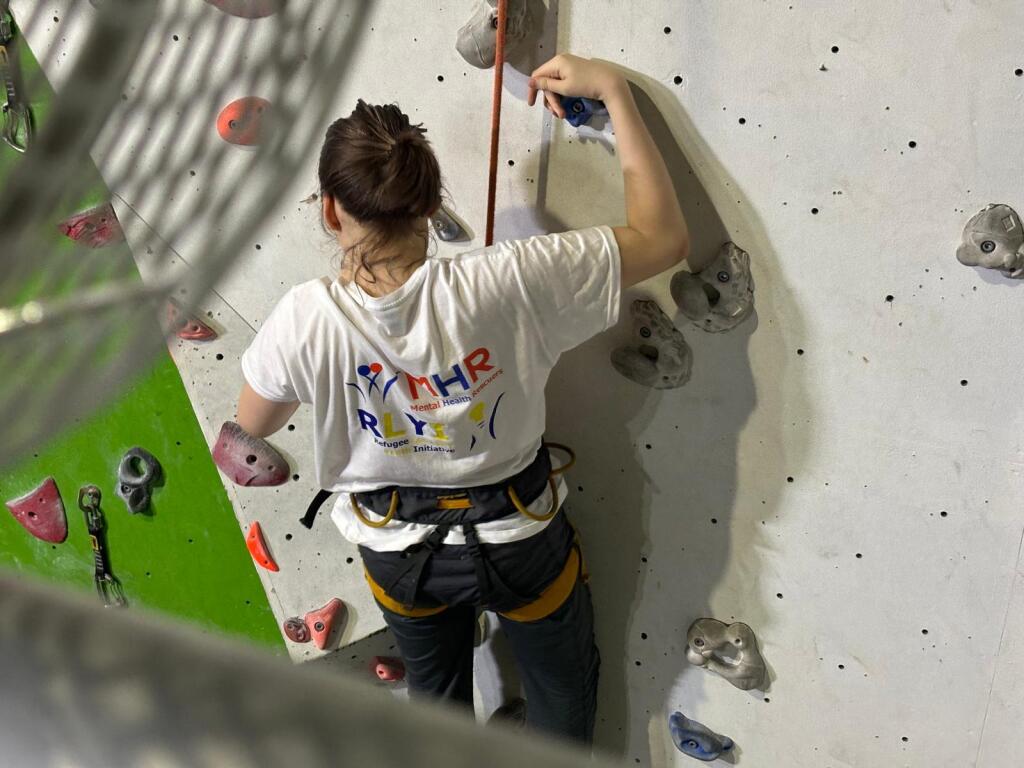
It’s equally critical to strengthen youth participation in shaping these policies. Youth representatives must be included in crafting resolutions at the UN General Assembly, the Human Rights Council, and the Economic and Social Council (ECOSOC). By amplifying the voices of young people from diverse regions, we can ensure that mental health policies are informed by lived experiences and that resources reach the communities most in need.
The future of global mental health advocacy requires structural change. Youth must demand comprehensive systems to monitor and report on mental health outcomes globally. This could include collaborating with the WHO and the UN Development Programme (UNDP) to establish mental health indicators within international development metrics. Such data would help hold governments accountable and ensure mental health remains a priority in policymaking.
Addressing mental health at the global level is not just about awareness; it is about systemic transformation. It requires mobilizing youth, engaging directly with international leaders, and building a coalition of nations committed to redefining mental well-being as a cornerstone of global progress. As aforementioned, by working hand-in-hand with decision-makers like Felipe Paullier and other influential leaders, young people can secure a future where mental health is no longer overlooked but recognized as a universal right and an essential element of global resilience.
Can you tell us about the significance of your research on indigenous well-being and youth participation in policy-making?
My research on Indigenous well-being and youth participation in policy-making is deeply significant in addressing historical inequities and fostering inclusive governance. Indigenous communities face unique challenges, including systemic marginalization and cultural erosion, yet they possess invaluable knowledge about resilience, environmental stewardship, and communal well-being. My work sought to bridge these worlds by integrating traditional practices into modern frameworks, particularly in mental health and youth engagement.
Drawing from research conducted at institutions like the University of Oxford, the University of Cambridge, and Harvard University, I developed culturally adaptive frameworks that honor Indigenous traditions while incorporating evidence-based practices. For example, the integration of storytelling and community healing ceremonies with therapeutic interventions has proven highly effective in improving mental health outcomes among Indigenous youth.
At the same time, my work emphasized the need for Indigenous youth to have a seat at the table in global decision-making. Collaborating with bodies like the UN Permanent Forum on Indigenous Issues, I advocated for tangible commitments to ensure Indigenous youth representation in shaping policies on climate change, human rights, and sustainable development.
This research underscores how honoring Indigenous knowledge and empowering youth participation can address global challenges while fostering a more inclusive, resilient, and equitable future.
What was it like to be nominated for the SDG Award, and how does it motivate your work moving forward?
Being nominated for the SDG Award was an incredibly humbling and validating moment in my journey. It reinforced that the work I’ve been passionately pursuing—whether through Mental Health Rescuers, youth advocacy, or mental health support for vulnerable populations—aligns with the global goals set forth by the United Nations. It is a recognition not just of my efforts, but of the collective efforts of the incredible teams and communities I have had the privilege of working alongside. The nomination highlighted the importance of youth voices in shaping the future of our world and the urgent need to address critical issues like mental health, social inclusion, and human rights.
This recognition motivates me even further to keep pushing for systemic change. It fuels my determination to continue elevating the voices of young people in global decision-making and ensures that mental health becomes a priority in international policy. Being nominated for such a prestigious award also strengthens my belief in the power of collaboration and the necessity of involving diverse global perspectives to achieve the SDGs.
Moving forward, this recognition drives me to continue expanding our initiatives—whether it’s scaling up mental health support, enhancing youth-led advocacy, or pushing for new global resolutions. The SDG Award is not just an honor but a reminder that meaningful change is possible when we harness the collective power of youth and international partners, and it inspires me to work even harder toward a world where mental health is prioritized and where every young person has a voice in shaping our shared future.
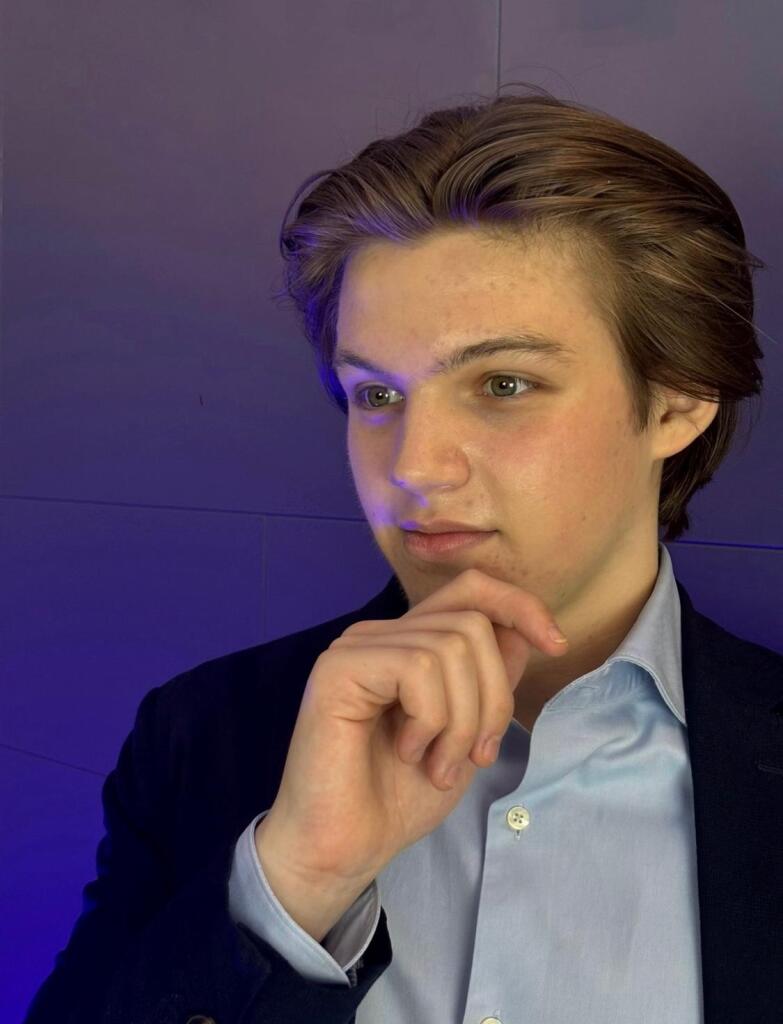
For young people who aspire to make a difference globally, what advice would you offer?
My advice is simple: believe in the power of your voice and never underestimate the impact of your actions. The world needs your energy, creativity, and passion to tackle some of its most pressing challenges. Don’t wait for permission to lead—start with the issues that matter to you and your community, no matter how big or small they may seem.
It’s important to be curious, to ask difficult questions, and to seek out opportunities to learn from diverse perspectives. The more you understand about the issues you care about, the more effective your advocacy will be. Whether you’re passionate about mental health, climate change, education, or human rights, the key is to remain persistent and adaptable. Change rarely happens overnight, but small steps, consistently taken, can lead to significant transformation.
One of the most powerful tools you have is collaboration. Engage with others who share your values, build networks, and connect with organizations, governments, and institutions that can amplify your impact. Global change is rarely achieved in isolation—it requires partnerships, dialogue, and collective action.
Finally, don’t forget that self-care is crucial. Working to change the world can be overwhelming, but taking care of your mental and emotional well-being is just as important as the work you do for others. Lead with empathy, resilience, and an firm commitment to your cause.
As young people, you can shape the future. Harness that power, stay focused, and remember that every action, no matter how small, contributes to building a better, more just world for everyone.





